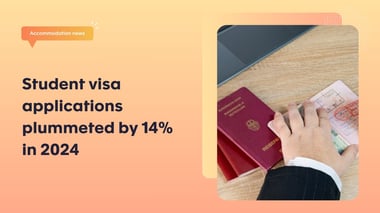A new survey reveals that more than half of full-time university students in the UK are now working long hours in paid employment to support themselves, raising concerns about the emergence of a two-tier higher education system.
The Higher Education Policy Institute (HEPI) surveyed 10,000 full-time UK undergraduates and found that a record 56% had paid jobs during term time, working an average of 14.5 hours per week.
This marks a significant shift from pre-2021 patterns when roughly two-thirds of students did not engage in paid work while studying.
‘Full-time study may become unfeasible’ for students
When combined with time spent on lectures, classes, and other academic pursuits, many students with part-time jobs are averaging 48-hour working weeks during term time.
Some, particularly those on intensive courses such as veterinary studies and dentistry, report workweeks stretching to 56 hours – far exceeding the average 36.6 hours worked by adults in full-time employment, according to the Office for National Statistics.
Rose Stephenson, Hepi’s director of policy, warns that the traditional model of higher education in the UK – with undergraduates studying full-time away from home – is becoming increasingly unattainable without improved student maintenance support.
“As students battle the cost of living, the trend around part-time work becomes more concerning,” Stephenson said.
“If this trend continues, full-time study may become unfeasible for many.”
The survey reveals that three-quarters of students in paid employment cited meeting living costs as their primary motivation, while 23% also reported working to provide financial support for friends or family.
Working students have entered a ‘danger zone’.
Nick Hillman, the director of HEPI, expressed concern that many working students have entered a “danger zone” identified by earlier research, associated with higher drop-out rates and reduced chances of achieving top grades.
“I think this is already a problem,” Hillman said, pointing to the development of a “bifurcated” system where some undergraduates can afford the traditional university experience, including extracurricular activities and sports, while others must prioritise paid work.
The impact of these financial pressures extends beyond academic performance.
The survey found that students working part-time were more likely to use artificial intelligence (AI) programs and view lectures online, potentially missing out on valuable in-person learning experiences and interactions with peers and instructors.
The situation appears particularly dire for students from disadvantaged backgrounds.
The survey revealed that 80% of students who had been in care were working in part-time jobs, highlighting the additional burdens faced by those with less financial support.
The National Union of Students (NUS) has also raised alarm bells, reporting in a separate study that the proportion of students using food banks has doubled as the cost-of-living crisis has worsened.
In the 2023-24 academic year, 14% of students told the NUS they had used a food bank, compared with 7% in 2021-22.
Chloe Field, the NUS’s vice-president for higher education, emphasised the toll these pressures are taking on students' well-being and academic performance.
“Not only are students cutting back on food, they are working almost full-time on top of already full-time studies, leaving them exhausted and unable to commit proper time and energy to our studies,” Field said.
The NUS is calling for urgent action to address these issues, including the reintroduction of maintenance grants that meet the true cost of living, increased maintenance loans, and making students eligible for universal credit.
Despite these challenges, the HEPI survey did reveal some positive findings.
Student satisfaction levels have rebounded from the lows seen during the Covid pandemic, with 39% of students saying their course was good value for money – the highest proportion in a decade.
However, this improvement was primarily driven by higher satisfaction among international students, potentially masking ongoing issues for domestic students.
If you are interested in letting your property to students, accommodationforstudents.com is the no.1 student accommodation service in the UK.




